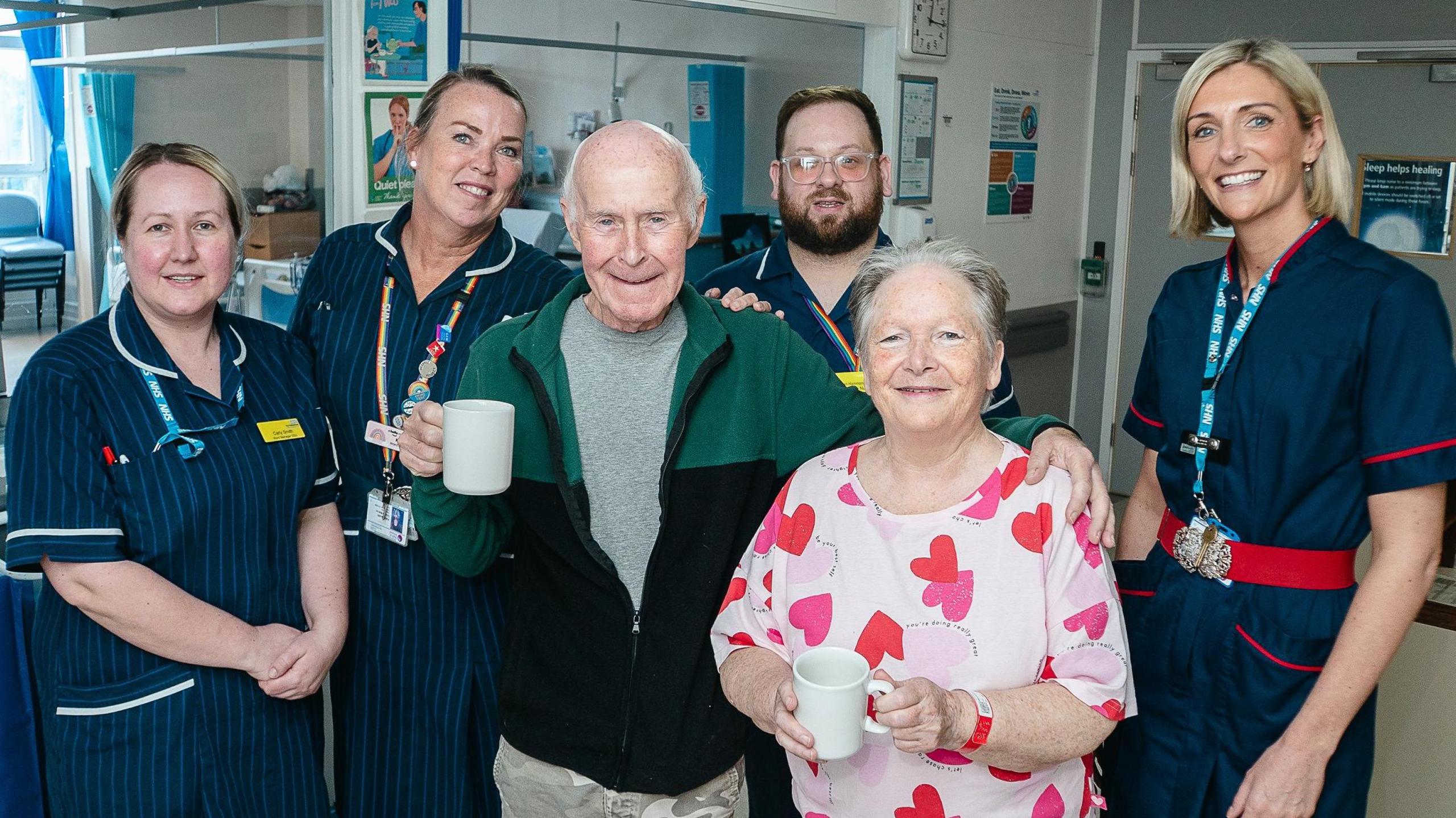Hospital decaf pilot aims to reduce falls

Patients are being urged to kick caffeine to improve their bladder health
- Published
Hospital patients are being asked to switch their regular cup of tea or coffee for a decaf drink in a bid to reduce the risk of falls.
Rotherham NHS Foundation Trust is trialling the move from caffeinated to decaffeinated drinks on two wards.
As well as reducing the risk of falls the switch also promotes better bladder health, a spokesperson said.
Since the trial began on the Short Stay and B5 wards in May, the Trust said it had seen a 30% reduction in falls.
Caffeine, a natural stimulant found in tea and coffee, can exacerbate bladder sensitivity, leading to frequent urination and disruptions in daily life, the Tust said.
It said the switch to decaf drinks would lead to "significant improvements in bladder control, reduced bathroom visits, and a lowered risk of falls, particularly at night".
It said the change could also lead to improvements in sleep, reduced indigestion and help prevent headaches and dehydration.
Deputy chief nurse Victoria Hazeldine said: “Our pilot is designed to help patients manage their bladder health more effectively.
"By promoting the benefits of decaffeinated beverages, we aim to reduce the negative impact of caffeine on the bladder, reduce falls and improve overall wellbeing.
"The research carried out so far has been showing up to a 30% reduction in falls.”
The trial is due to run until the end of 2024.
The trust said if the anticipated benefits are borne out by the results the use of decaffeinated drinks on wards is likely to become commonplace throughout the hospital.
Follow BBC Yorkshire on Facebook, external, X (formerly known as Twitter), external and Instagram, external. Send your story ideas to yorkslincs.news@bbc.co.uk, external